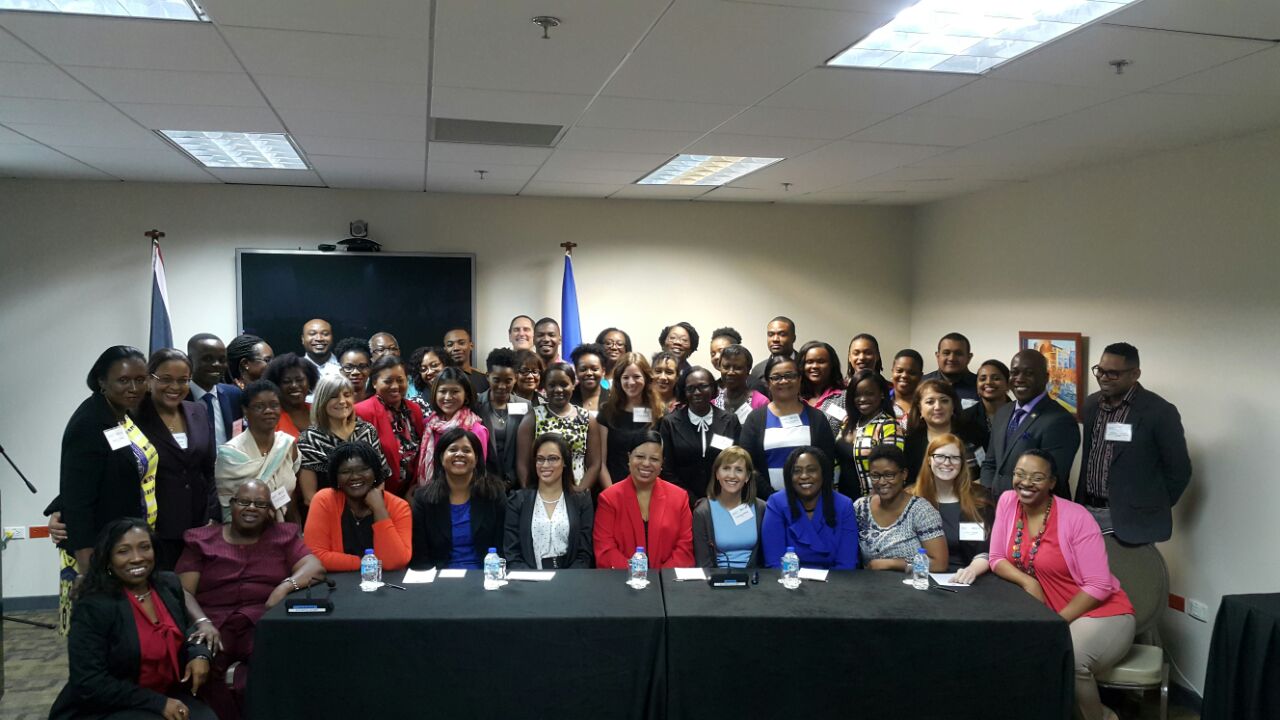
Global Accelerated Action for the Health of Adolescents (AA-HA!)PANCAP represented by Youth Adviser
PANCAP’s Youth Advisor, Dr Astel Collins (Hon.), recently represented PANCAP at a workshop aimed at building capacity for the implementation of the Global Accelerated Action for the Health of Adolescents (AA-HA!) guidance. The workshop was implemented by PAHO/WHO, UNFPA and UNICEF. The purpose of the workshop was to assist governments in deciding what they plan to do – and how they plan to do it – as they respond to the health needs of adolescents in their countries. The AA-HA! is intended as a reference document for national-level policy makers and programme managers to provide them with step-by-step guidance for setting their national priorities, and translation of these priorities into plans and programmes. The training focused on how to conduct a proper needs assessment, how to do a landscape analysis, how to set national priorities, how to identify key areas for programming and then monitoring and evaluation.

Participants of AA-HA!
The discussion at the workshop focused on adolescents being central to the overall success of the 2030 Agenda. Furthermore, the Global Strategy for Women’s, Children and Adolescents’ Health is leading the way in articulating the actions needed to capitalise on existing achievements from the MDGs, operationalise the Sustainable Development Goals (SDGs) and assure that the unfinished MDG agenda is addressed within one generation. Therefore, investing in adolescents brings a triple benefit: 1) healthy adolescents now; 2) Healthy adults in the future and 3) healthy future generations. Moreover, any nation that successfully implements the AA-HA! guidance to develop their adolescent will have a reduction of preventable adolescent and youth morbidity and mortality, their risk factors and determinants, and the risk factors for premature adult mortality. As well as the promotion of positive adolescent and youth health and development.

PANCAP Youth Advisor, Dr Astell Collins
Dr Collins reported that the team from Guyana will create a multi-sectoral, multi-agency steering committee and appoint a focal point which is likely to be from the Ministry of Public Health and then subsequently create a work plan for the AA-HA strategy development in Guyana. The first meeting is scheduled to be held in January 2018.
WHAT IS PANCAP?
PANCAP is a Caribbean regional partnership of governments, regional civil society organisations, regional institutions and organisations, bilateral and multilateral agencies and contributing donor partners established on 14 February 2001. PANCAP provides a structured and unified approach to the Caribbean’s response to the HIV epidemic, and coordinates the response through the Caribbean Regional Strategic Framework on HIV and AIDS to maximise efficient use of resources and increase impact, mobilise resources and build the capacity of partners.
What are the Global AIDS Strategy 2021–2026 targets and commitments?
If targets and commitments in the strategy are achieved:
- The number of people who newly acquire HIV will decrease from 1.7 million in 2019 to less than 370 000 by 2025
- The number of people dying from AIDS-related illnesses will decrease from 690 000 in 2019 to less than 250 000 in 2025.
- The goal of eliminating new HIV infections among children will see the number of new HIV infections drop from 150,000 in 2019 to less than 22,000 in 2025.
What are the 95-95-95 Targets for ending AIDS?
- 95% of People Living with HIV know their HIV status;
- 95% of people who know their status on treatment; and
- 95% of people on treatment with suppressed viral loads.
HELPFUL LINKS:
Global AIDS Strategy 2021–2026, End Inequalities, End AIDS
https://pancap.org/pancap-documents/global-aids-strategy-2021-2026-end-inequalities-end-aids/
Caribbean Regional Strategic Framework on HIV and AIDS (CRSF) 2019-2025
https://pancap.org/pancap-documents/caribbean-regional-strategic-framework-2019-2025/
